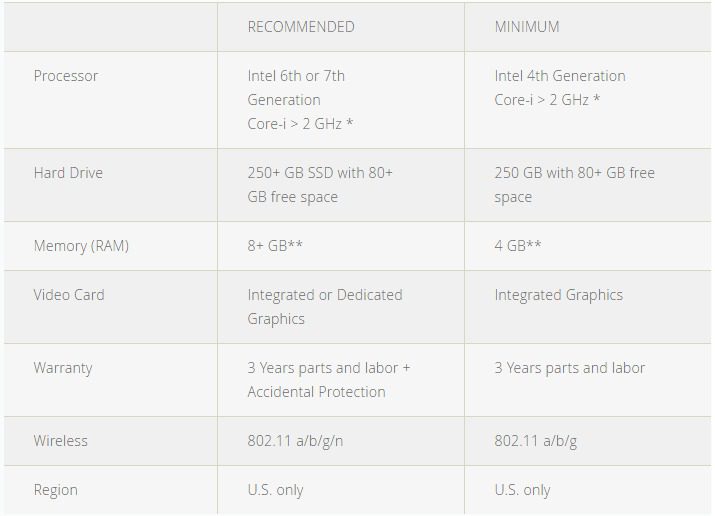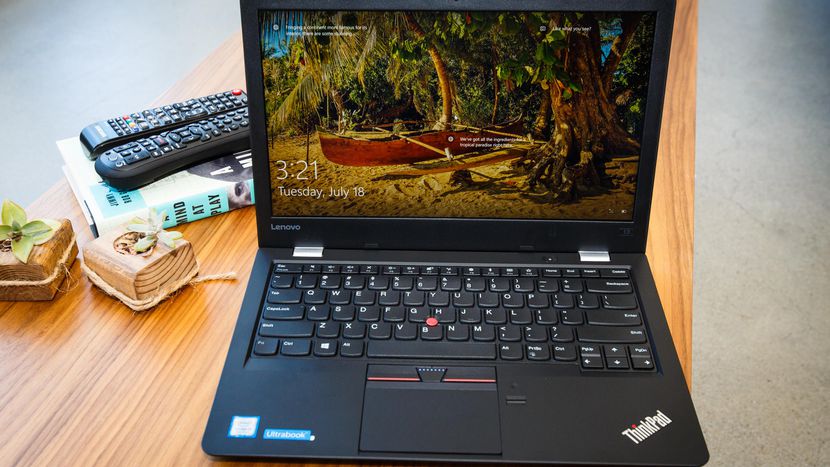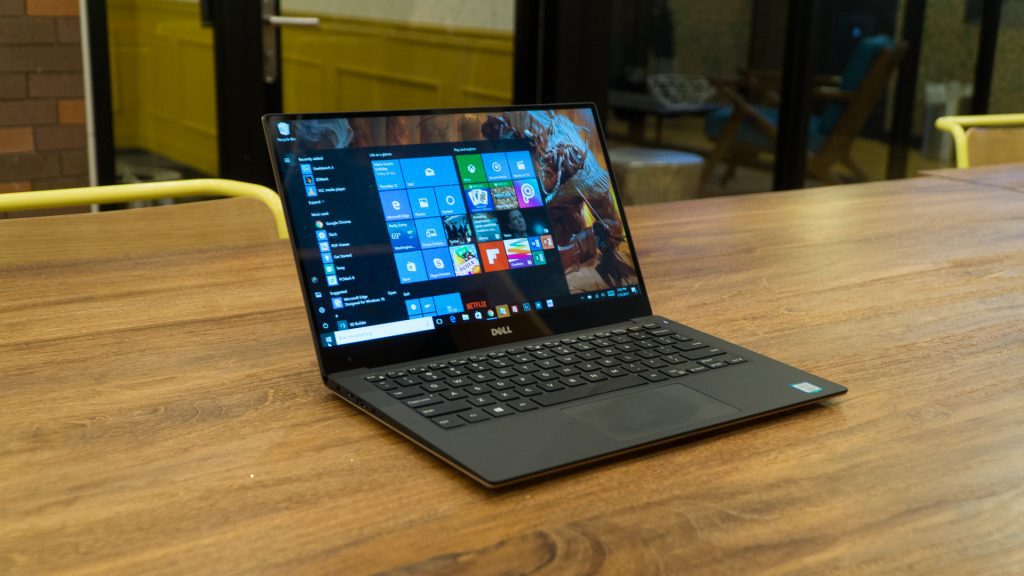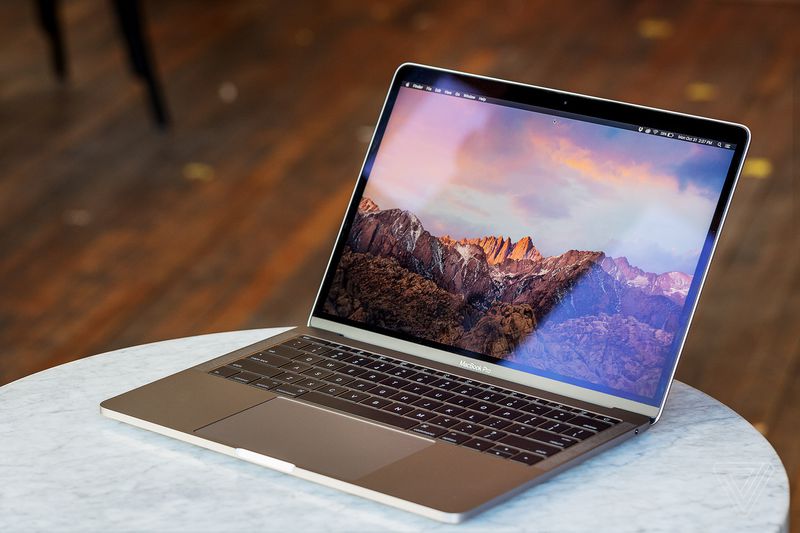Getting To Know The Denver Metro

Resting beside the scoping silhouette of the Rocky Mountains lies Denver, the 19th most populous metro area in the United States, and arguably its most serene, uniquely blending urbanization and naturalism.
As the Denver metro continues to expand and its economy continues to swell, we at MetroMBA are expanding as well. As we continue our coverage of the best MBA offerings in North America and the UK, we welcome our readers to take a look at the best business schools Denver has to offer.
Getting To Know The Denver Metro
If you haven’t heard already, Denver—The Mile High City—rests one mile [5,280 feet (1,609 meters)] above sea level. For those already familiar with the joyous overture of altitude sickness (bring a water bottle—everywhere), this not-so-fun-fact is only a small part of Denver’s academic environment. Located only several minutes south of center city Denver is the Daniels College of Business at the University of Denver. Founded in 1908, Daniels is among the eight oldest business schools in the United States, and features over 2,200 combined graduate and undergraduate students. Named after Bill Daniels, who donated an immense grant to the institution, the school officially changed its name from the College of Business Administration to the Daniels College of Business in 1994.
The school is routinely lauded by the likes of U.S. News, Forbes, and the Financial Times for its highly-recommended entrepreneurial and Executive MBA programs, as well as the MBA@Denver Online MBA. For the 2017-18 academic year, the Daniels full-time MBA (known as the Denver MBA), will cost students $69,391. This is just shy of the average Daniels MBA graduate average starting salary of $69,842. About 68 percent of Daniels’ graduates earn a full-time job just three months after graduation.
Located right in the middle of center city Denver is the Colorado University Denver Business School, which features five different MBA program offerings, including: a full-time Professional MBA; an 11-month accelerated MBA; the CU Denver Business School Executive MBA; the Health Administration MBA; and the highly-ranked Executive MBA Program in Health Administration, which is regarded by U.S. News as one of the 25 best “graduate programs in health services administration.” The UC Denver Business School, which was originally part of CU Boulder, has a second location 20 miles south of its center city location at the Liniger Building, formally part of CU South Denver.
Its original home, the University of Colorado Boulder, houses the most highly-regarded business institution in the state: the Leeds School of Business. Ranked among the best business schools in the country by both U.S. News and Forbes, Leeds is located less than 30 miles northwest of center city Denver. It offers both an exceptional full-time and Evening MBA, enrolling around 300 total students in both programs.
The accredited business school is, in fact, two years older than the aforementioned Daniels College of Business, making it the oldest business school in the state. Leeds holds a staggering 97 percent graduation rate for MBA students, who earn an average of $80,123 upon receiving full-time employment. MBA students that graduate from Leeds have been recently employed by notable companies like Deloitte, McKinsey & Co., Microsoft, Oracle, and more.

The Leeds School of Business at CU Boulder
Travel about an hour north of Denver and you’ll find the Colorado State University College of Business, located in Fort Collins. The CSU College of Business, located on the north end of the CSU campus, hosts a myriad of well-rounded MBA programs, including the universally well-regarded Online MBA—ranked among the 20 best in the world by the Financial Times. The MBA program is also one of the most affordable in the state, with current full-time tuition coming at a total cost of $40,368, and $40,897 for part-time students.

Colorado State University
The Denver Metro Business Community
After the federal and state government, both the first and second largest employers in the state, Denver is home to several of the country’s largest healthcare institutions, including American Medical Response and DaVita, as well as large employment branches for companies like Kaiser Permanente. The metro area is also home to the famous Coors Brewing Company, as well as more than 160 other brewing companies, which helped the city earn the nickname “The Napa Valley of Beer.” In addition, Denver is the original home of Western Union, Frontier Airlines, and multiple fast food chains, including Chipotle, QDoba Mexican Grill, and Quizno’s. According to the U.S. Bureau of Labor Statistics, the city has also seen employment figure increases in almost all industries.
Explore MBA programs in the Denver metro, subscribe to our informative weekly newsletter, and follow us on Facebook.
Finding the Best Laptop for Business School

Brand. Affordability. Technical specifications.
In no certain order, these principle factors are the three pillars to consider when purchasing a laptop. For prospective business school students, despite having very different priorities than your average consumer, these three factors tend to weigh above everything else. However, before starting any MBA program, there are a few more things that they may need to consider.
Finding The Right Laptop for Business School
The UCLA Anderson School of Management, one of the world’s most familiar business school institutions, gives incoming students a comprehensive guide of what kind of laptop they’ll need before starting the MBA program.
Like many business schools, most of the software required by the UCLA Anderson MBA program run on the Windows operating system. As we previously mentioned, this is primarily because business school students are expecting to utilize familiar programs like Microsoft Excel. Windows is the standard operating system for most computers, however, it can be installed on Macs for optimal use.

Technical specifications recommended for UCLA Anderson MBA students.
Many of the specifications UCLA Anderson details in their recommendations for students, such as the 4 GB of memory, come standard with most mid-level to premium-level laptops. For the unfamiliar, 6th and 7th generation processing units are also standard for any recently-purchased PC. The last 4th generation Intel processor was shipped in early 2015.
Using UCLA Anderson’s guideline as an informal rule of thumb, we’ve broken down what optimal devices you should be looking for if you’re enrolling in an MBA program, or need an immediate upgrade while you continue your studies.
Looking for Something Affordable
For those in the market for a more affordable machine or are concerned their recently purchased Chromebook isn’t up to par, there are more options than ever in the affordable laptop market. The Acer Aspire E 15, the world’s best-selling laptop, is among the most affordable bets available. Lauded by Laptop Mag, which called it the best sub-$500 laptop on the market, the Acer Aspire E 15 starts at a surprising $350, or, $429 coupled with Windows Office. The standard $350 model comes with an Intel i-3 7th generation processor and 4 GB of standard memory with numerous upgrade options available.
For a slightly larger investment, however, MBA students may be hard-pressed to look at the Lenovo ThinkPad 13.

Lenovo ThinkPad 13/Photo via CNet
The ultra-durable (military-tested, in fact) ThinkPad has become a staple model for the business community. Starting at just under $500, the ThinkPad 13 has numerous available upgrades with an astounding 12-hour battery life. For those enrolled in or joining an MBA program, the model comes with a standard 4 GB of memory, but requires an upgrade to an Intel 7th generation processor.
The Optimal Mid-Tier Option
For those looking to invest a bit more in your purchase, Dell’s mid-tier XPS and Inspiron models might be the best machine upgrades without going the bank-breaking route.
The award-winning XPS models have become the crown jewel of the laptop market for the past few years, rewarded by outlets like Laptop Mag, PC Magazine, and TechRadar as one of the best computers on the planet. The XPS 13, starting at $799, comes packed with the latest 7th generation Kaby Lake Intel processor, providing a visual performance that cannot be matched by even the best affordable options. With some welcoming but not totally necessary upgrades, the not-yet-released 2018 model will sport a slightly reduced price even with the fully-packed new specs, including the 8th generation Intel i-7 processor, 8 GB of memory and 256 GB of SSD storage. Still, for MBA students, the standard XPS 13 or slightly larger-sized XPS 15 are more than enough to start.

Dell XPS13/Photo via TechRadar.
High Rollers
No one will argue going for the affordable route, but, let’s be honest for a moment. If you’re seriously considering enrollment in an MBA program, or are already enrolled in business school, dishing out a couple hundred more bucks for a top-tier laptop model doesn’t even come close to tuition rates. Plus, if you’re looking at the new laptop as an investment, then providing some more resources might be the best choice you can make.
Beyond the $1,000 benchmark, the aforementioned Mac becomes obvious. The visually-stunning new MacBook Pro may be the most hip offering out there, even with the $1,499 starting price tag (which jumps to $1,799 with the giddy TouchBar). The 13″ MacBook Pro boasts some of the sleekest industrial design of any available model, although without any available USB ports. To make the machine slimmer than the competition, Apple, to a sea of complaints and curious convictions, eliminated much of the standard ports included in most laptops in favor of adaptable Thunderbolt C ports. For the business student, the model may not seem to be precisely necessary. But for entrepreneurs looking to expand a brand with world-class designs and presentation, there may be no better accompanying device.

The new MacBook Pro/Photo via Verge.
Still, foregoing a machine that comes complete with Windows OS isn’t recommended for MBA students. For those that prioritize sleek exterior design and slim portability, then why not go right to the source? Microsoft’s endearing Surface Pro is among the world’s most beloved models, called the “Best Laptop Right Now” earlier this year by Verge.
“Microsoft’s new Surface Laptop is the best laptop for most people because it blends power, portability, and battery life better than any other computer. It has a great keyboard and trackpad; a beautiful, high-resolution touchscreen; and comes in four different colors. It uses Intel’s latest processors and can be specced out with up to 16 GB of RAM and 1 TB of storage.”
Like the aforementioned Dell XPS 13, the Surface starts at $799, but fully modifying the machine is probably the way to go. Unlike the other models mentioned, however, Surface Pro owners have the option to immediately upgrade to Windows 10 Pro for free. This offers easily usable features welcome to any business school climate, along with the standard Intel 7th generation processing unit.

Microsoft Surface Pro/Photo via Microsoft
When Should You Buy a New Laptop?
According to Cnet, the right time to buy a laptop might not be so obvious, like Black Friday. Rick Broida writes, “Sure, you’ll see some low-end laptops priced to move, but high-end models—gaming laptops, ultraportables and the like—don’t usually see big Black Friday price cuts. Rather, history suggests that these machines sell for less in the summertime, during back-to-school sales.
For those looking to invest in a higher-end model, do not expect sales any time soon—if at all. Optimally, whichever laptop you have must be ready before the start of the MBA program. Some schools, like the aforementioned UCLA Anderson School of Management, require a laptop review months before the program begins, so a purchase is better made sooner than later.
Coles College Introduces New Hall Of Fame Members

Harry Maziar and Doug Shore, two of most generous supporters of the Michael J. Coles College of Business and Kennesaw State University, have been formally recognized for their philanthropy and success by the business school, announcing each as new entrants to its Hall Of Fame.
“Harry Maziar and Doug Shore both are great friends of Kennesaw State University and of the Coles College of Business,” Dean Kathy Schwaig said in a recent press release. “Doug and Harry serve the Coles College out of a sincere desire to be examples for and mentors to our students.”
Shore is the Co-Founder, former Chairman, and former CEO of Shore-Varrone, Inc., an Atlanta B2B institution. Debuting in 1982, Shore-Varrone, Inc. started with just one publication and trade show to its name, eventually sprouting into 11 magazine titles and seven trade shows before Shore sold the company in the late ’90s.

Doug Shore appearing at the Coles Hall of Fame ceremony/Photo via David Caselli
Shore’s entry in the Hall Of Fame comes only a year after he and his wife Robin donated a gift to the business school, forming the Robin and Doug Shore Entrepreneurship Center. He and his family have also previously supporting scholarships and other programs at the business school.
“Doug promotes the mission of the College in all that he does,” Dean Schwaig added. “He provides guidance to me as well as to so many others on campus. Doug believes in entrepreneurship and capitalism, and wants to help our students prepare for successful careers and lives.”

Harry Maziar/David Caselli
For nearly three decades, Maziar was the active President of Zep Manufacturing Company, an Atlanta-based specialty chemical manufacturing institution founded in the late 1930s. After helping fuel multiple decades of growth and a rapid expansion of the employee force at the company, Maizar officially retired as the acting Chairman of the National Service Industries, the parent-company of Zep Manufacturing.
Mazair was the school’s first official Executive in Residence. He is also very familiar with the Atlanta philanthropy scene, previously working with the Junior Achievement of Atlanta, the Atlanta Humane Society, and United Way of Metro Atlanta. He and Shore are officially the 9th and 10th members of the Coles College Hall of Fame, which was introduced in 2015.
For more on the induction, head over to the official Kennesaw State University website.
Been Waitlisted? Here’s What to Do (And Not Do)

There’s an art to the waitlist, and it can be mastered.
Remember, you’ve probably been waitlisted for a reason. For one, you’re qualified. Otherwise, you would have received a denial. Unfortunately for you, other candidates had a bit more of an edge. Maybe their GMAT scores or GPA was higher. However, your dream school might not be theirs, so there’s always that chance that enough applicants will deny the offer, and the school will, in turn, offer a place to you.
The waitlist can also serve as a sort of test for applicants the school isn’t 100 percent sure about. Here are a few simple tips to help you put your best foot forward while on the waitlist and show your dream school that it needs you just as much as you need it.
Follow Instructions
Schools are pretty clear about how they want you to respond to their notice. If they ask that you not send a letter, then don’t—no matter how much your heart aches to. If they ask for another letter of recommendation, send one as soon as possible. It’d be even more effective if a former colleague or mentor who attends/attended the school or works at it write the letter (assuming they know you personally). Don’t hesitate to do whatever the school asks from you, especially if it is your first choice. That’s the kind of attitude that may lead you where you want to go. But don’t do too much if the school doesn’t ask for it.
Last year, Clear Admit wrote about this dilemma, saying, “ignoring the adcom’s instructions is ultimately going to reflect badly on you. Though policies discouraging communication from waitlisted candidates may seem frustrating or unfair, it’s important to respect and abide by the preferences of each school.”
Clarify Your Intentions
If you plan to wait it out, it may be important to let the school know. If the school is your first choice, let your contact there know as well. Whatever it is that you plan to do next, inform the school. You must do all this, of course, without appearing too cloying and without disregarding whatever instructions the school provided in the waitlist notice. If schools know, however, that you’ll definitely accept their offer, there’s a better chance they’ll offer it to you than that waitlist applicant from whom they never heard back. They also want to know how interested you are, so keep in touch.
“There are candidates who are offered a place on the waitlist and then we never hear from them again. And there’s candidates who don’t overwhelm us with contact but at least stay in touch and help us remember them,” said James Holmen, Director of Admissions and Financial aid at Indiana University—Bloomington’s Kelley School of Business, to U.S. News.
Retake GMAT
Even if a school doesn’t ask this from you, it still might be a good idea to retake the GMAT. Some of the most common gaps in applications include a low GMAT score and GPA. If a school doesn’t accept you the first time around, chances are it had something to do with one of those factors. And your GMAT score, at least, you can change. Unless you scored an 800. Then, you’re a genius, and something is really wrong with the school to which you applied.
Really, though, any time something changes in your application, feel free to inform the school, which includes updated GMAT scores. But if you receive a promotion or a job change, that’s something worth telling them too.
Consider Plan B
This really is a personal decision. Are you in a rush to get that MBA? If so, then it might be a better idea to hop on it as soon as you can and forget that waitlist. You’ve likely been accepted into a number of other MBA programs. But have you been waitlisted at your dream school? Is it one of the best in the world? Well, then, it might be worth waiting it out because you have a chance. If they don’t go with you this time, you can increase your chances next round by doing some of the tips laid out above.
“If you’re wait-listed, it means you’re a great candidate,” U.S. News reported. “You can apply next year. So, honestly, a year plus or minus doesn’t change things.”
Good luck, and chill out. Everything will turn out for the best in the end.
A Recommendation Revolution Is Underway in MBA Admissions: What You Need to Know

I’m busy, you’re busy, your boss is most definitely busy. Indeed, publications ranging from Men’s Health to the Atlantic, the Washington Post to Forbes are all reporting that “busyness“ has become the new status symbol for our times. Which is part of what makes asking someone to write you a letter of recommendation for business school so daunting. Now, try telling that person that you actually need five different letters for five different schools. Oy vey.
As uncomfortable a spot as it puts applicants in—it’s no better for recommenders. Even your most vociferous supporter is going to wonder what in the world she’s gotten herself into when she realizes that helping you in your pursuit of acceptance to business school means taking time away from work or play or family or whatever else to labor over leadership assessment grids, each a little different from the one before, and write 10 slightly different answers to 10 slightly different questions. Here’s hoping that your top-choice school doesn’t happen to be the last one she gets around to…
Good news. The graduate management education industry recognizes the strain that letters of recommendation put on applicants and recommenders alike and has been wrestling with ways to make the process easier for everyone involved. To this end, the Graduate Management Admission Council (GMAC) established a committee made up of admissions representatives from dozens of leading business schools to brainstorm about ways to lessen the burden while still collecting the third-party assessments of candidates that are so critical to the MBA application process.
GMAC Pilots Common MBA Letter of Recommendation
As an outgrowth of that committee’s work, GMAC last year piloted a common MBA letter of recommendation (LOR) that schools can choose to incorporate into their applications to reduce the burden placed on applicants and recommenders alike.
“The Common Letter of Recommendation (LOR) effort is intended to save you and recommenders valuable time by providing a single set of recommendation questions for each participating school,” reads the GMAC website. “This allows your recommenders to use the same answers for multiple letter submissions, alleviating the workload of having to answer different questions for each school multiple times. You benefit because it makes the ask for several different letters to be written on your behalf much easier.”
Cornell’s Johnson Graduate School of Management, NYU Stern School of Business, and Michigan’s Ross School of Business were among the first schools to pilot the Common LOR last year. In addition to a single set of open-ended essay questions, the pilot Common LOR also included a leadership assessment grid inviting recommenders to rate applicants on 16 “competencies and character traits” grouped into four main categories of achievement, influence, personal qualities and academic ability.
“At Johnson, we saw the Common LoR as a clear opportunity to improve the admissions process for candidates and their recommenders in a way that would also add value to our own assessment of applicants,” Judi Byers, Johnson executive director of admissions & financial aid, told Clear Admit. “A thorough and consistent review is important to us and the grid provides a straightforward base of insights that can be assessed and compared reliably while the accompanying letter adds meaningful detail and context,” she added.
Soojin Kwon, managing director of full-time MBA admissions and program at Ross, sees applicants and recommenders as the main beneficiaries of the Common LOR and is pleased that more schools are coming on board. “As more schools adopt it, applicants won’t have to feel like they’re burdening their recommender with completing multiple rec letters with different questions and ratings grids,” she told Clear Admit. “This year, more than a dozen of the top 20 schools are using it.”
Ross was also among the schools to first pilot the Common LOR last year, and Kwon served as part of the GMAC committee that helped craft it.
Common Questions Easy to Agree on, Common Leadership Grid Not
“What we found in using the Common LOR this year past year was that the questions gave us helpful insights into applicants, particularly on the important area of constructive feedback. The questions, however, were fairly similar to what we and other schools were using before, so it was easy for the AdCom to use it,” she notes.
Those questions are as follow:
- Please provide a brief description of your interaction with the applicant and, if applicable, the applicant’s role in your organization. (50 words)
- How does the performance of the applicant compare to that of other well-qualified individuals in similar roles? (E.g. what are the applicant’s principal strengths?) (500 words)
- Describe the most important piece of constructive feedback you have given the applicant. Please detail the circumstances and the applicant’s response. (500 words)
- Is there anything else we should know? (Optional)
“The rating grid was quite different from what we’d used in the past,” Kwon continued. “It was also the most difficult part for the GMAC advisory group to develop and get agreement upon. The group worked this past year to revise and simplify the grid so that AdComs could get more meaningful insights from it.”
This year, the 16 competencies and character traits from the original grid have been distilled to 12, with specific questions about analytical thinking and information seeking omitted. Johnson and Ross have both incorporated the revised leadership grid into the LOR distributed to applicants as part of their applications, as have most other schools that have this year decided to incorporate both the grid and open-ended essay question portions of the form. UT’s McCombs School of Business and Rice University’s Jones Graduate School of Business, notably, still seem to feature the earlier version of the leadership grid in their application, the one that calls on recommenders to assesses applicants on 16 competencies and traits.
How to Deal with a Bad GMAT Score

You’ve been studying for months, possibly losing sleep as you go over the practice questions in your head and, as a result, getting some oh-so-enjoyable stress dreams. If any of this sounds familiar, you probably have had to—or currently are—preparing to take that Graduate Management Admission Test (GMAT).
